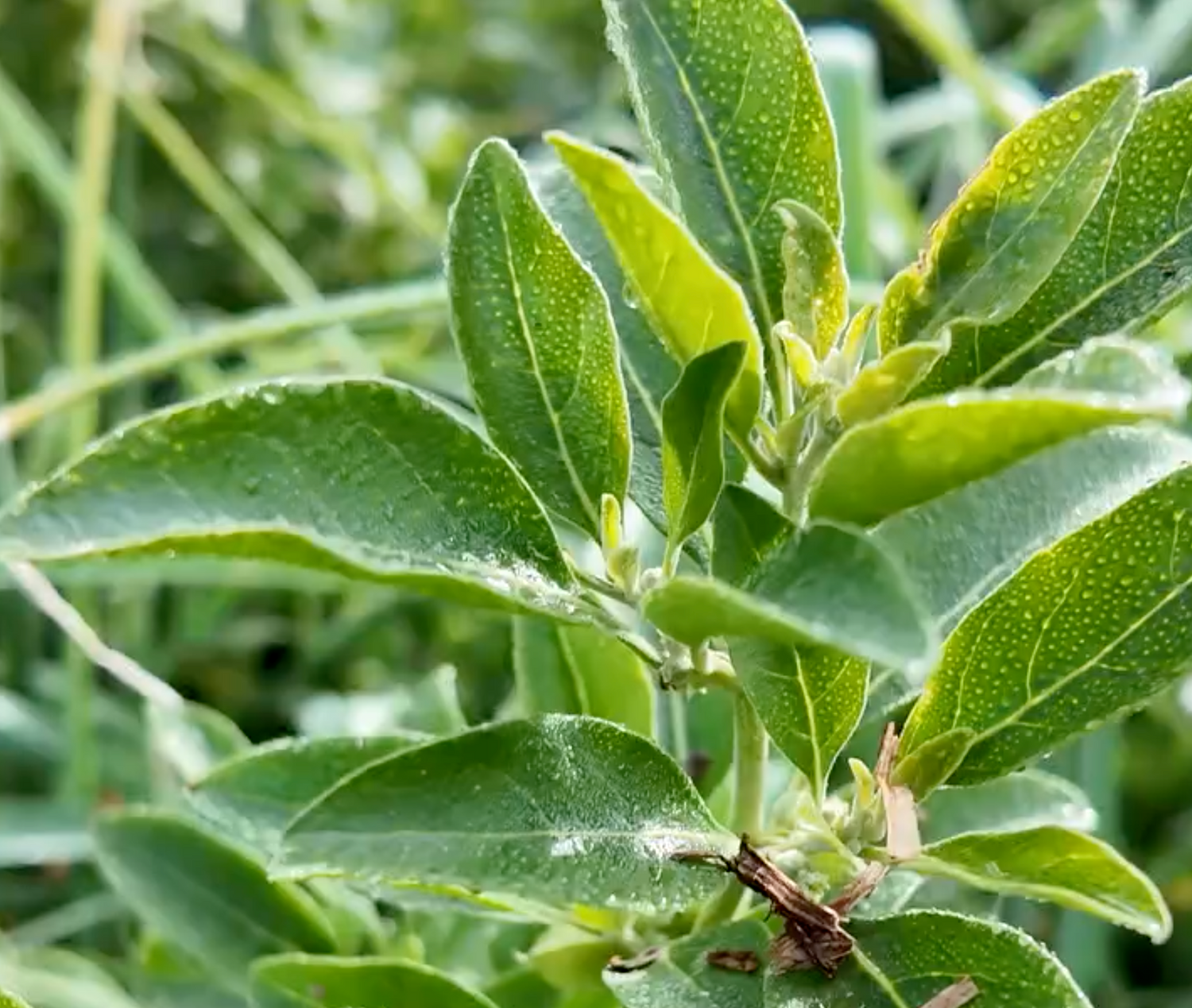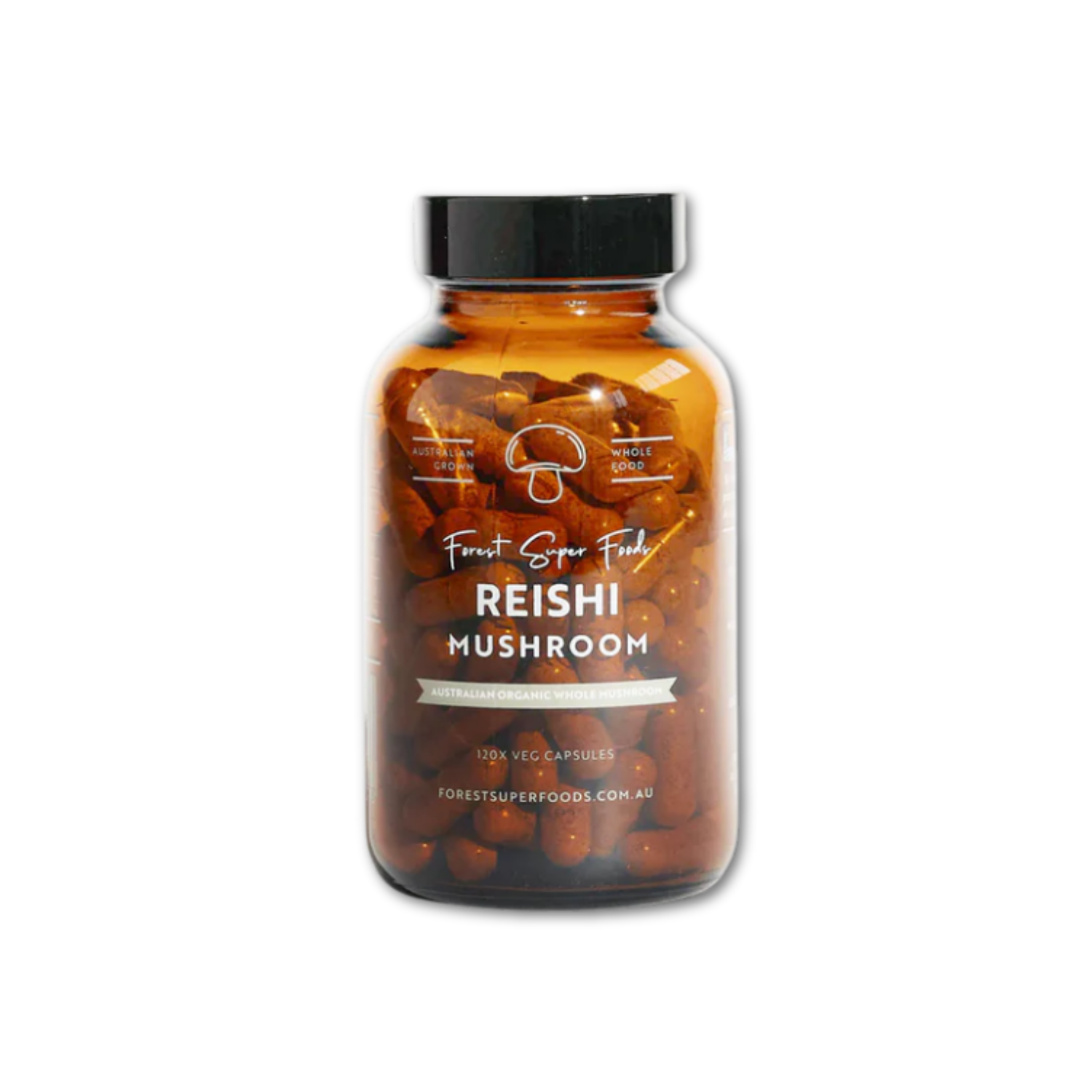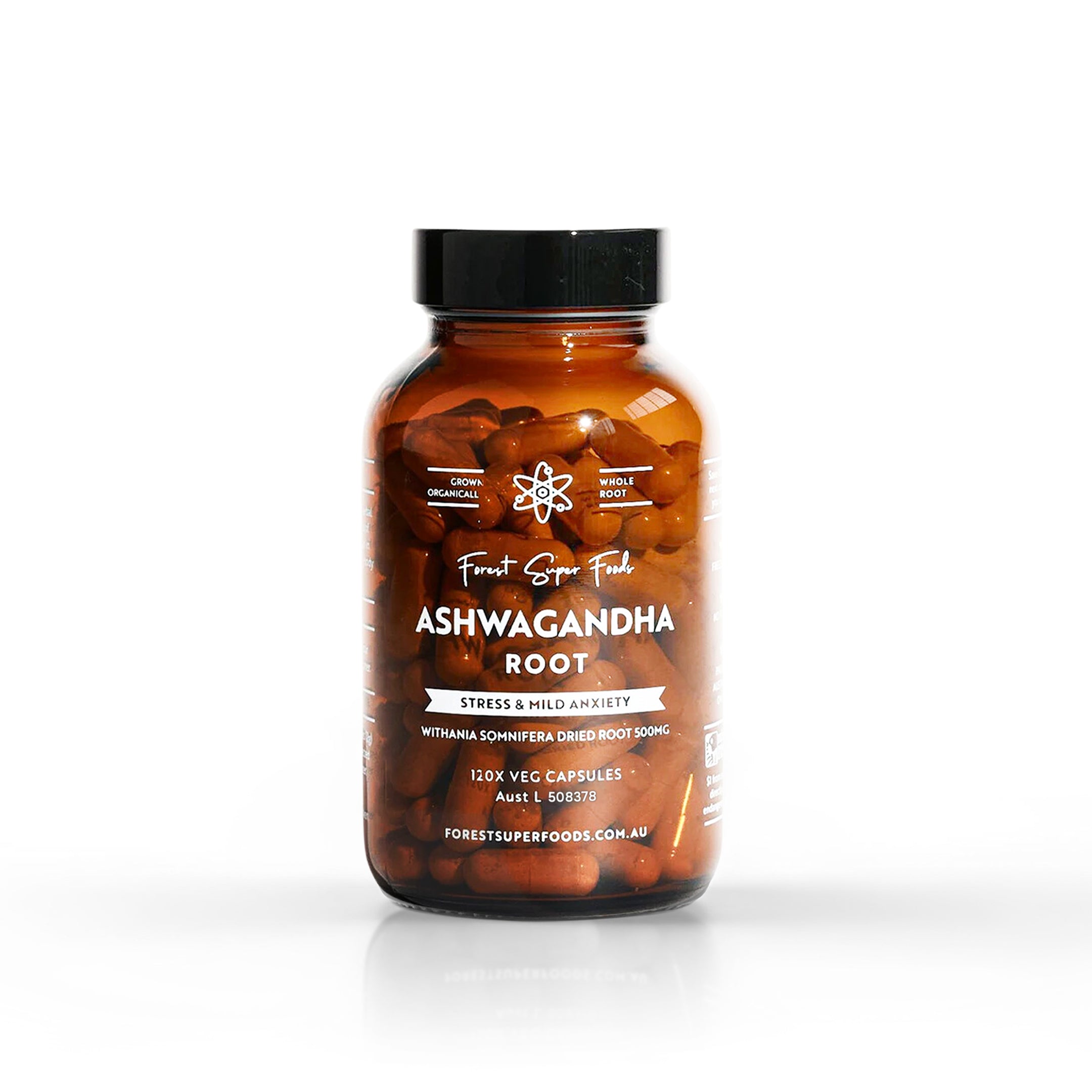Ashwagandha (Withania somnifera) is a small evergreen shrub belonging to the nightshade family (Solanaceae). Native to India, the Middle East, and parts of Africa, it has been a cornerstone of Ayurvedic medicine for over 3,000 years. Known as a Rasayana (rejuvenator), Ashwagandha is prized for its adaptogenic properties — meaning it helps the body adapt to stress and maintain balance.
Its name comes from Sanskrit: ashva meaning “horse” and gandha meaning “smell,” referring to the fresh root’s distinctive aroma, which was traditionally associated with imparting the strength and vitality of a horse.
1. Botanical Profile
-
Scientific name: Withania somnifera
-
Common names: Indian ginseng, winter cherry
-
Appearance: A short, woody shrub with green, ovate leaves and small bell-shaped yellow flowers. It produces bright red, berry-like fruit enclosed in a papery husk.
-
Edible/medicinal part: The root is most commonly used, but leaves, berries, and seeds also hold medicinal value in traditional remedies.
|
"
"It takes the edge off. Much more relaxed using it and improved rest. Keep up the good work Forest Super Foods." - Darren P. (Verified Customer)
|
 |
2. Traditional Uses
In Ayurveda, Ashwagandha has been used to:
-
Improve resilience to stress and fatigue
-
Enhance physical strength and stamina
- Promote restful sleep (somnifera means “sleep-inducing”)
It has been classified as a Rasayana herb — a category of botanicals believed to promote longevity, rejuvenation, and overall wellbeing.
3. Key Active Compounds
Ashwagandha contains a group of naturally occurring steroidal lactones known as withanolides. These compounds are thought to contribute to the plant’s adaptogenic, anti-inflammatory, and neuroprotective effects.
Other notable components include:
-
Alkaloids
-
Saponins
-
Flavonoids
4. Modern Research and Potential Benefits
Scientific studies have explored Ashwagandha’s role in:
-
Stress & Anxiety Reduction – May help lower cortisol levels and support calmness.
-
Energy & Stamina – Can improve physical performance and reduce fatigue.
-
Sleep Quality – Traditionally used to improve sleep onset and quality.
| "I have been on ashwaganda for a short time and already have had amazing results and sincerely hope people look into this amazing product as there is no need to suffer and thanks forest super foods ❤️" - Michelle (Verified Customer) |
 |
5. Forms and Usage
-
Capsules – Convenient daily supplementation.
Tip: Consistency is key — adaptogens tend to work best when taken daily over several weeks.
Ashwagandha is more than just a herbal supplement — it’s a deeply rooted botanical in traditional medicine, now validated by modern science for its adaptogenic, stress-reducing, and vitality-boosting properties.
Whether taken to ease stress, improve energy, or promote restful sleep, Ashwagandha offers a natural way to support mind-body balance and resilience.
Organic Ashwagandha CapsulesA powerful supplement for your health and wellness. Order Now |

|
Frequently Asked Questions
What does Ashwagandha do for the body?
Ashwagandha is a traditional adaptogen known for helping the body manage stress. It may support hormone balance, improve energy levels, reduce anxiety, and enhance sleep quality. Some studies also suggest benefits for brain function, endurance, and immunity.
Is Ashwagandha allowed in Australia?
Yes, Ashwagandha is approved for use and sale in Australia as a listed ingredient in supplements. At Forest Super Foods, we ensure our Ashwagandha is 100% organic and compliant with Australian standards and regulations.
What happens if I take Ashwagandha daily?
Many people take Ashwagandha daily for long-term stress support, improved mood, and better sleep. Most benefits are noticed gradually over weeks. Always follow the recommended dose and consult a healthcare professional if you're on medication or managing a health condition.
Does Ashwagandha have side effects?
Ashwagandha is generally well tolerated, but in some cases, it may cause digestive upset, drowsiness, or hormonal effects. It's not recommended during pregnancy, and people with thyroid conditions or autoimmune disorders should consult their doctor first.
Does Ashwagandha make you sleepy?
Ashwagandha doesn't act like a sedative, but it may promote relaxation and help reduce overactive stress responses. This calming effect may support deeper sleep at night without causing grogginess during the day.
How long does it take for Ashwagandha to kick in?
Most people start noticing effects within 2 to 4 weeks of consistent use. However, it can vary depending on your health, dosage, and what you're using it for (e.g., stress, sleep, energy, or hormones).










Leave a comment
All comments are moderated before being published.
This site is protected by hCaptcha and the hCaptcha Privacy Policy and Terms of Service apply.